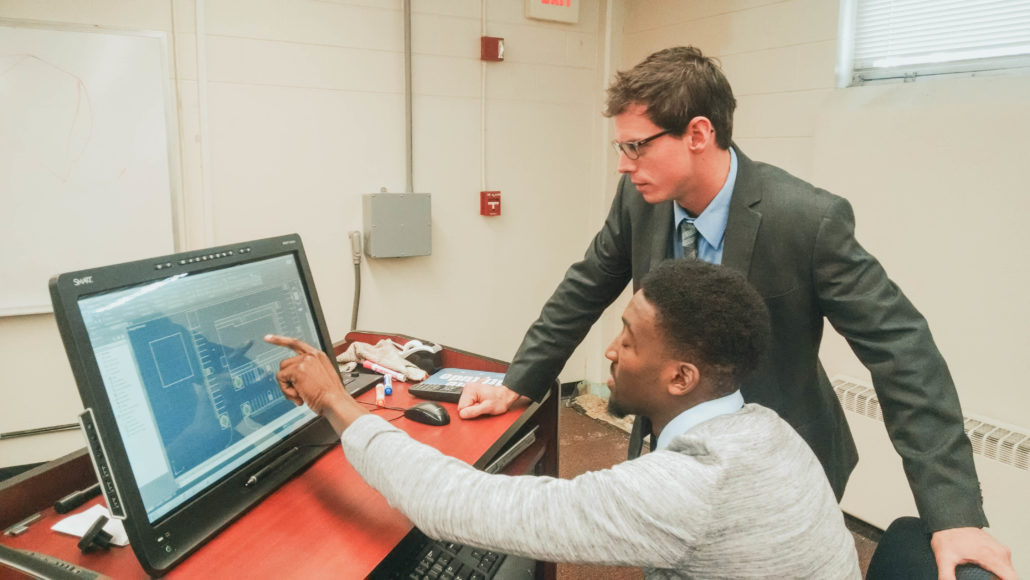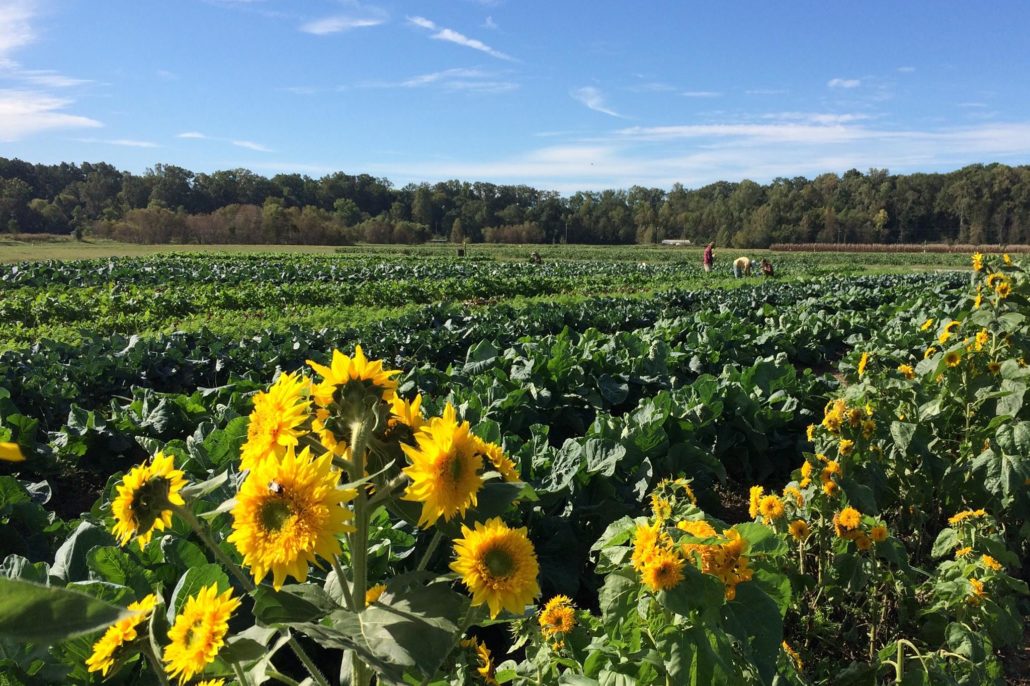
Share This Article!
Related Articles
More than a Farm: Clemson’s Student Organic Farm Exemplifies Sustainability
By: Lauren Kirchenheiter
About the Farm
Research, teaching, and public outreach — these are the pillars through which Clemson’s Student Organic Farm executes its mission “to provide an experiential learning environment demonstrating ecologically, economically and socially sustainable farming strategies which strengthen local food systems.”
The Student Organic Farm (SOF), which initially was established in 2001 as a market garden, finds its home in the Calhoun Fields along the perimeter of Clemson’s campus. Nicknamed “The Bottoms,” the fields are rich with agricultural history as records suggest John C. Calhoun did some of his own farming in the area, and, according to uncovered artifacts, the Creek Indians worked the land before him.
Wanting to preserve the agricultural value of the land, Dr. Geoff Zehnder, professor of entomology and coordinator of the Sustainable Agriculture Program, played an integral role in founding the SOF. “When I came [to Clemson] in 2000, there was talk about maybe using it for parking for football games — this big, wide open area,” he says. “So a group of us got together and started talking about some alternative uses for it. How could we utilize it to protect the green space down there?”
“To provide an experiential learning environment demonstrating ecologically, economically and socially sustainable farming strategies which strengthen local food systems.”
Shawn Jadrnicek, the farm manager, was brought on about five years ago and has since has been crucial to the farm’s progress. “He’s very talented with what he does,” says Zehnder. “He uses permaculture principles in the farm design, and has actually written a book about some of the innovative systems that he’s developed at the SOF.”
The SOF presents a unique opportunity both on campus and within the larger farming community. Since it was established, it has grown to become an instrumental resource in developing, improving and teaching sustainable, organic agricultural practices. However, Zehnder still has several ideas to maximize the farm’s usefulness by capitalizing on all that the versatile land has to offer. “How many colleges have 80 acres of green space right on campus?” he exclaims.
Organic Farm Logo
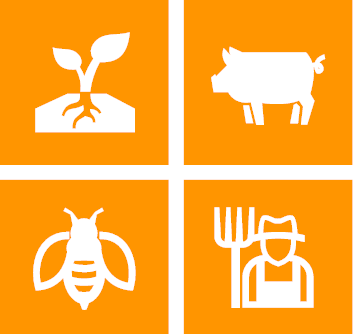
Impact on the Community: Research and Teaching
Zehnder would love to see the SOF have a more formalized, integrated relationship on campus, and further establish it as an educational resource. Today, undergraduate and graduate students do all of the work for the farm; some hold paid positions, while others are volunteers. About 15 graduate students have completed research projects at the SOF, and Creative Inquiry classes as well as components of other courses offer hands-on work at the farm. To Zehnder, working with the students has been the most rewarding aspect of the project. “It’s interesting to see some [students] have come from various majors across campus, and some have actually gone on to careers in farming,” says Zehnder. There are several SOF alumni now finding success in agriculture.
Independent classes, trainings and workshops are also held at the farm, which lends to the program’s goal of experiential learning; participants are able to “learn by doing” in areas like sustainable agriculture and organic farm practices. People come from all over to attend training workshops on different topics. The idea is to be profitable with a small amount of land. According to Zehnder, a main goal of the SOF is to produce “small, diversified, high-value type crops” and demonstrate how others can do the same.
The SOF was certified organic in 2005. Zehnder explains that this was an important accomplishment because it allows other farmers that are thinking about getting certified to see how the SOF is handling the production and recordkeeping requirements. The farm has also received the USDA Good Agricultural Practices certification on food safety. Obtaining these certifications helped to establish the SOF as a viable example and resource for farmers hoping to incorporate many of the same practices into their own farming techniques and eventually achieve the same certifications. “We wanted to establish the SOF as a working farm that would be typical of what someone with a small piece of land could do in South Carolina” Zehnder explains. Being a model for environmentally and economically sound farming practices is what the SOF is all about.
“It’s interesting to see some [students] have come from various majors across campus, and some have actually gone on to careers in farming,” says Zehnder.
Impact on the Community: Public Outreach
However, the purpose of the farm is not strictly research and education-oriented. It is a working farm, after all. As part of its efforts in public outreach, the SOF produces and sells shares of crops to members of the community in order to generate the funds necessary keep operations on the farm running smoothly. The Community Supported Agriculture (CSA) program offers members seasonal produce for a subscription price, and is what makes the SOF economically viable. A popular program within Clemson and the surrounding community, CSA accommodates between 80 and 120 members depending on the year, and offers two fourteen-week sessions — one in the summer and one in the fall. This program is open to all Clemson students, faculty and community members.
According to Zehnder, many people enjoy the social aspects of the program as well. Members come down on pick-up day, socialize, trade produce and talk to other people. Zehnder is excited about the possibility of further developing the farm as a gathering place. “I think there is a lot more we can do with [CSA] — events and things we could do at the farm,” he explains. “But up to now, we haven’t had the staff and resources to do a lot of community events. We have had farm dinners and people can rent out the building for their own events. But I think there is a lot of potential to do more.”
The program is also commended for the quality of the produce it offers. Zehnder says, “We get comments from people that say they join the CSA because the quality of the produce is better than that of the supermarket; some people also want to have pesticide-free produce for their families. We’ve had cancer patients come down and say that their doctors have recommended that they buy organic produce.”
CSA shareholder and Clemson-area community member Cari Holladay agrees that the quality of the produce is a major drawing factor for her as well. It is her first session as a member, after hearing about the program from a neighbor. She emphasizes the freshness and uniqueness of the food, considering that along with the great price to be a “win-win.” The produce she gets from the farm influences what she cooks, Holladay says. She bases recipes off of what she has, and gets to cook with less common foods she would not otherwise purchase at a normal supermarket.
Having grown up on a farm, Holladay appreciates not only the freshness and variety of in-season produce, but also the fact that her purchase “feeds back into the community.” She sees a lot of value in programs like these because “locally sustained means we don’t have to rely on other countries for food.” Holladay has already recommended CSA to friends because it has made a positive impact on her own family by offering fresh produce for a quality price, and it continues to have a positive impact on the community by encouraging sustainable agriculture and locally-sourced foods.
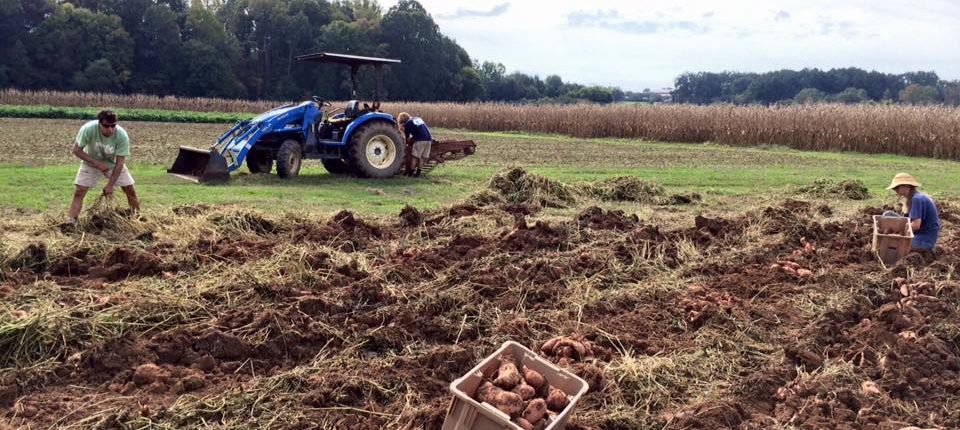
Looking Forward
Though the SOF has been extremely successful so far in achieving its mission through research, teaching, and public outreach, long-term plans for improvement are underway. Zehnder, Jadrnicek, and the rest of the farm staff have collaborated with the architecture department to develop a vision of what the farm can become. They hope to build new storage, classroom and market buildings, as well as integrate further with other areas of interest within the university, allowing other groups of people with a focus on sustainability to collaborate at the farm. Zehnder explains, “The biosystems engineers, for example, have an interest in biofuels, and you can grow biofuel crops down in that area, and you can process them into fuel.” There are also the fishponds that can be used for algae production, and algae can in turn be used to make biodiesel. The potential is limitless. Jadrnicek has already made great progress with greenhouse and high tunnel production, which can be used to extend the growing season. The farm staff looks forward to even more innovations such as this.
They hope to build new storage, classroom and market buildings, as well as integrate further with other areas of interest within the university, allowing other groups of people with a focus on sustainability to collaborate at the farm.
So why is sustainability and innovation so important? Zehnder insists, “It’s necessary to preserve agriculture and farmland for future generations — that’s the bottom line.” When people talk about sustainable agriculture, they often emphasize the three pillars: environmental, economic, and social aspects. Farmers do not want to degrade the land with their farming practices. In fact, some of the practices that sustainable organic farmers use actually improve the land and help the soil improve over time. Farmers also have to make a profit in order to stay in business. Finally, they want to preserve the viability of farm families and farm communities.
“There’s no recipe for sustainable agriculture,” explains Zehnder. “It takes knowledge and practice and experience [to implement sustainable practices]; it’s not something you can do right away, so that’s why I think some people don’t do it — because it takes some work and persistence.” But, using nature instead of trying to dominate nature with farming practices is actually more cost effective in the long run. Sustainable agriculture is always changing and improving; the goal is to continually become more sustainable. This ideal is the foundation of the Student Organic Farm.
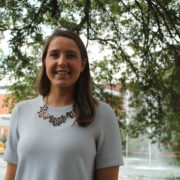
Written By: Lauren Kirchenheiter
Lauren Kirchenheiter is a Communication Studies major and Sociology minor from Annapolis, Maryland, graduating in May 2017. In addition to working with the Pearce Center, she is also a member of Clemson’s Women’s Club Volleyball team and a buddy through the Clemson Top Soccer and Challenger Baseball adaptive sports programs. She is especially interested in written communication, social media strategy, and public relations.

